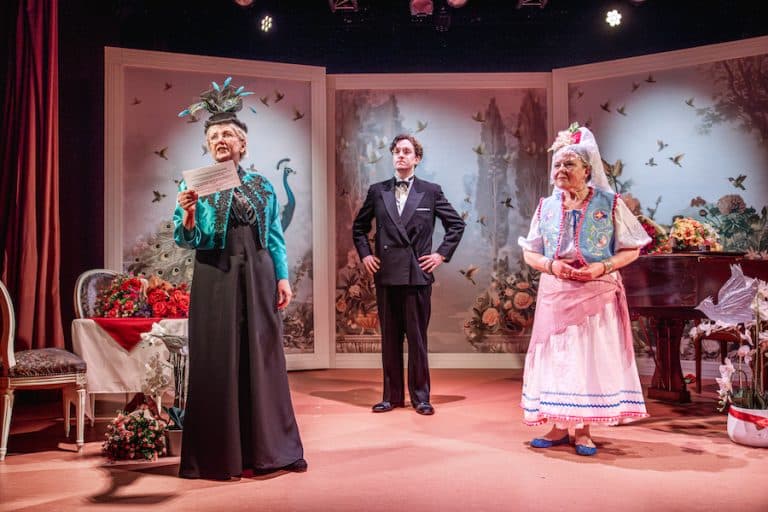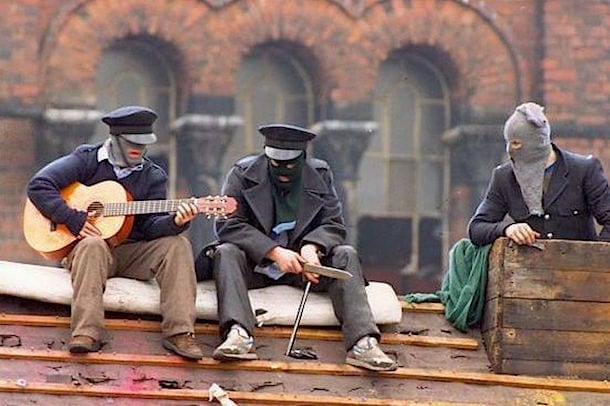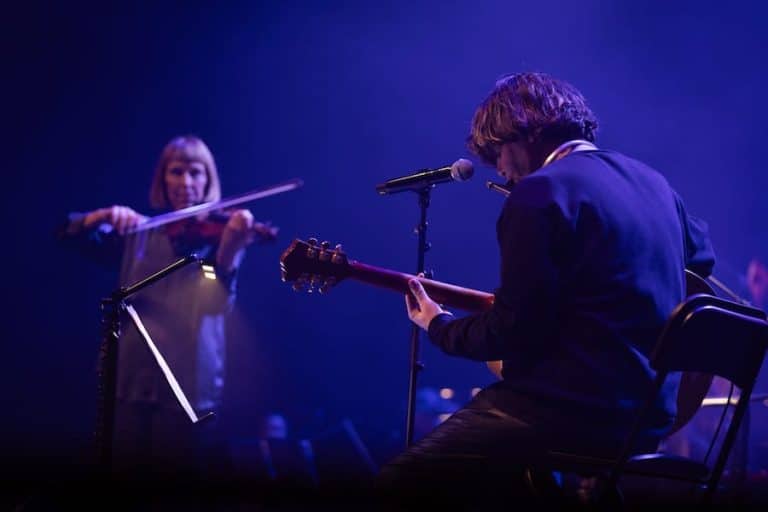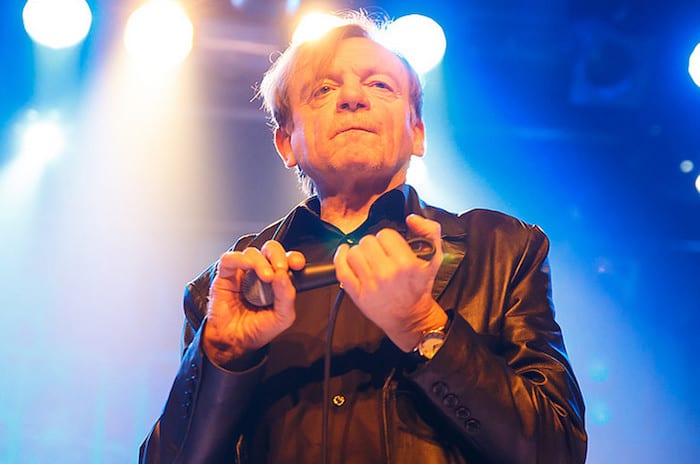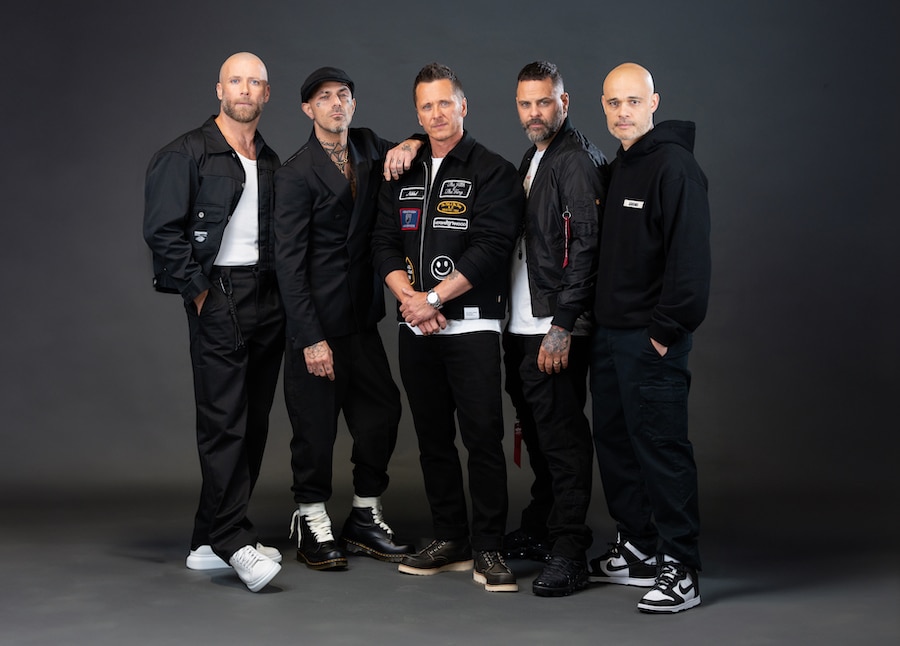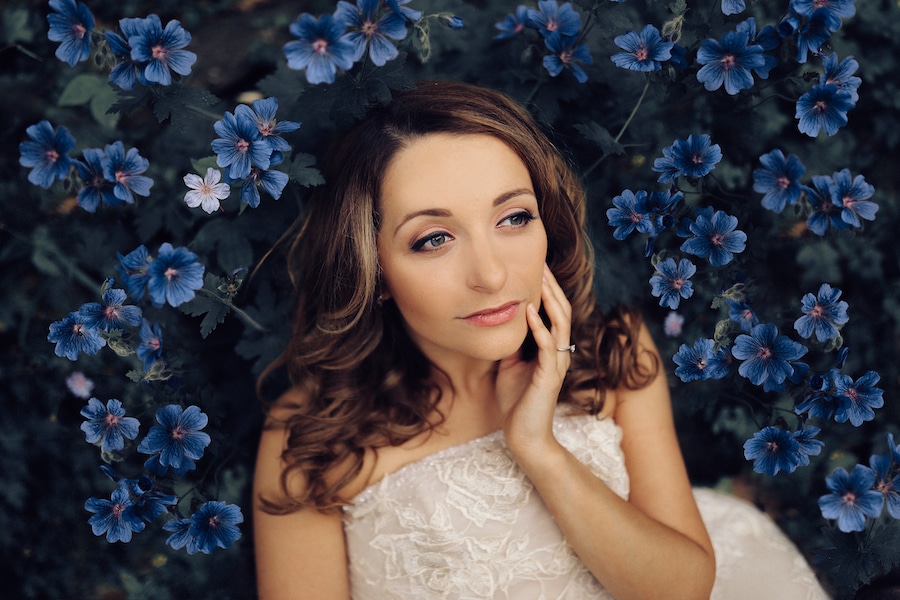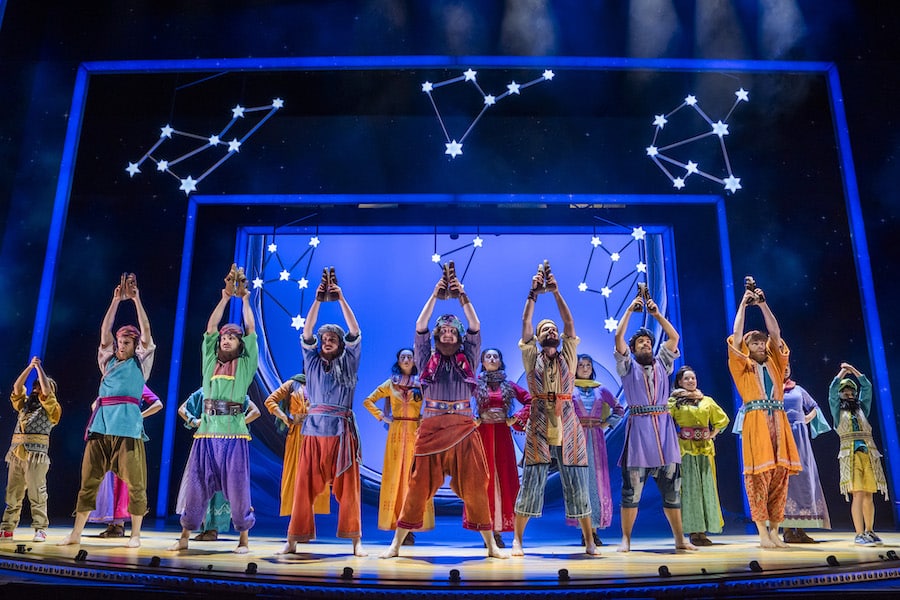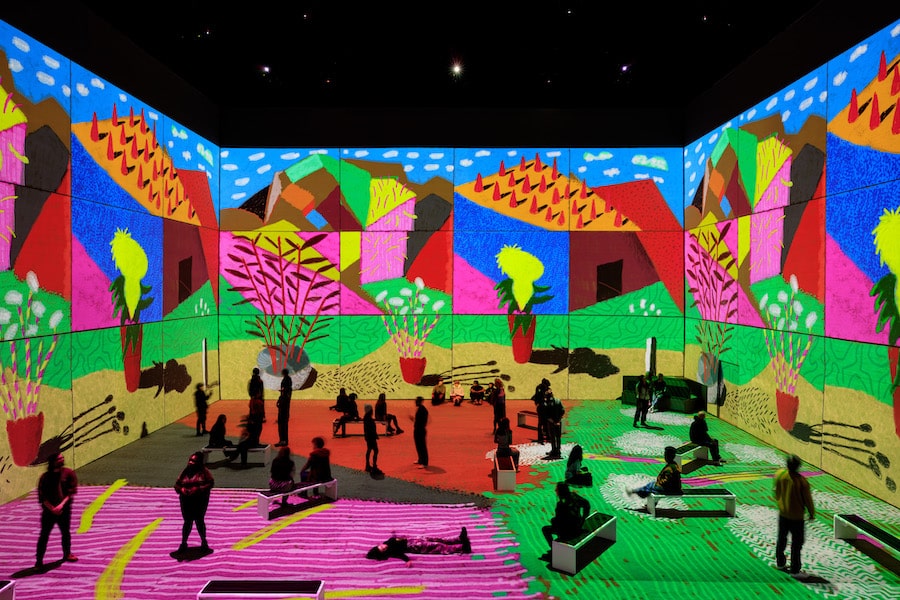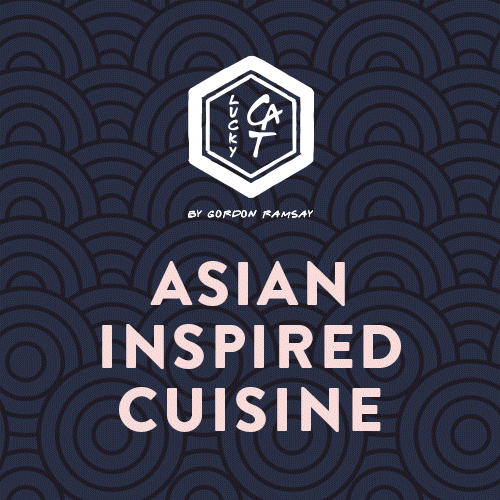“In Manchester, if you dream it, you can do it!” Artistic director celebrates 30 years of Feelgood Theatre
- Written by Glenn Meads
- Last updated 5 months ago
- City of Manchester, Featured, People, Theatre
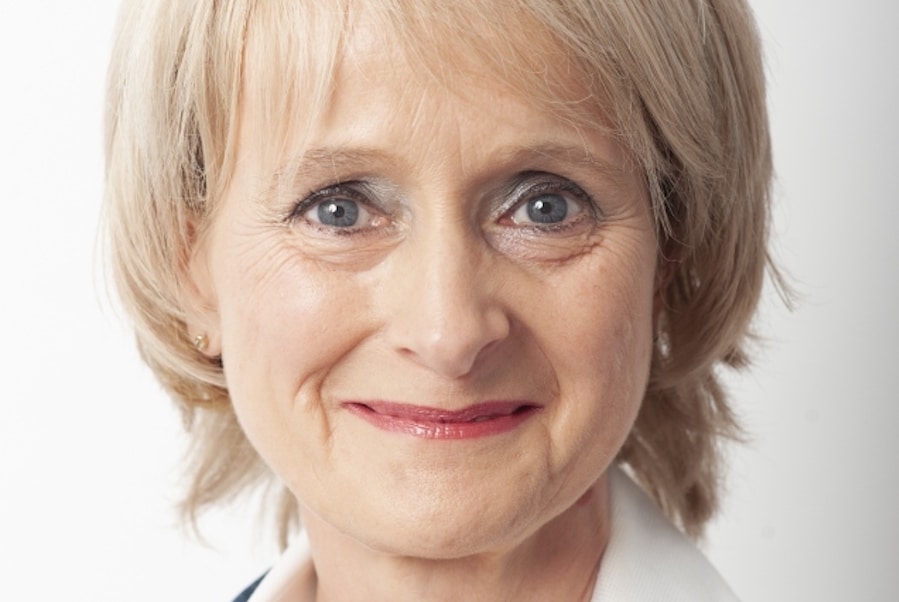
Caroline Clegg is a force of nature, who believes passionately in theatre which makes you laugh, cry or think.
She is a freelance theatre and opera director and lecturer and she has a great deal to celebrate, as Feelgood Theatre Productions is celebrating 30 years of producing award winning theatre.
The site-specific work that has taken place at Heaton Park has meant that this beautiful park is now known for more than walking the dog.
Caroline is at the heart of this, as she is Artistic Director of this innovative theatre company.
Caroline is often inspired by what she reads, and after reading Mende Nazer and Damien Lewis’s book Slave, she knew she had to tell this story on stage, even though there were many doubters along the way.
Not one to do things by halves, Caroline met Mende and heard her story and how slavery was so common and happening right in front of all of us.
Mende now lives in the US with her husband.
She is a nurse and also works with the Mende Nazer Foundation to raise money to help her family and people in the Nuba Mountains.
Caroline is a trustee of the MNF and this year they opened a maternity clinic and over the years we have installed water wells and taken medicine there.
We caught up with the indefatigable Caroline Clegg to find out more about Slave – A Question of Freedom, Mende and what inspires her to keep on making great theatre.
Feelgood has achieved so much, including making Heaton Park a destination for entertainment. What have been your two proudest moments?
It is difficult to choose two because in 30 years we have done quite a lot of shows, but I am proud of what we have achieved in Heaton Park making five star theatre.
Creating the repertory season in Heaton Park in 2008 of A Midsummer Night’s Dream and Blue Remembered Hills saw us true ambassadors of accessible theatre for everyone in the community, young, old, theatre-goer and first timer.
2008 was the 100th Anniversary of Annie Horniman starting Repertory Theatre in Manchester (firstly at the Midland Hotel) which spread across the UK and I was so proud that we were continuing her legacy. I was honoured with the Horniman Award that year for ‘services to live theatre in Manchester’.
Any other highlights?
Getting to the West End in 2006 with Not About Heroes was also a proud moment!
Though I am so proud of the very diverse shows we have created, especially in Zimbabwe with Romeo and Juliet – Thando and Ruvhengo which we brought back to Manchester for the Commonwealth Games Cultural Programme and of course Slave – A Question of Freedom.
To learn and share work from other cultures especially where music is concerned will always be a great joy – because music has the ability to cross any divide, bring people together and makes your heart sing.
You have so much energy, passion and desire and it never seems to wane. What keeps you motivated?
I just have to create shows that try to make a difference – shows that change hearts and minds or simply make people laugh, think or cry (as a friend once said to me).
In 30 years I have created a lot of site-specific and immersive work (long before that heading existed) and I am passionate that it is about community and for our community – all of us!
When I see an interesting space or building I want to know its stories – and share the stories of the people that inhabit or ‘haunt’ it.
For example I was saddened that the Manchester Pals Regiment who were formed and trained in Heaton Park during the First World War had not been commemorated properly so in 2016 we created Whispers of Heaton for the 100th anniversary of the Somme.
We took the story of real soldiers from Pals Regiments and the women who campaigned for peace and told their stories in two beautiful plays.
We also began a Remembrance Event in Heaton Park on Armistice Day to honour them and all those affected by conflict. This inspired me to get involved in the committee at Manchester City Council to bring to fruition the building of the Somme Memorial in Heaton Park.
Each year since, Feelgood and I have created a Peace Event on Remembrance Sunday which is a time to say thank you and remember.
It’s a legacy I am proud of.
In 2018 I created These Days – The Manchester Peace Song Cycle (librettist Tony Walsh and Wilfred Owen) alongside 9 composers the celebrate Heaton Park and Manchester.
I never want to stand still… as a farmer’s daughter from Bury I can’t be seen to being lazy now can I?
Tell us about how Slave – A Question of Freedom came to be. What inspired this piece?
Mende is the most inspirational woman I know. I read Mende’s autobiography Slave (by Mende Nazer and Damien Lewis published by Virago) which had been passed on to me by a friend in 2004. I read it in just two days.
The second day I was on a train coming back from London and when I arrived at Piccadilly my face was streaming with tears. How could I not know about modern slavery? How could I not tell others? Mende was my inspiration.
So I began a long journey to meet Mende. In 2006 I finally met her via her book agent and we met in a café in London.
This incredible young woman sat in front of me radiating positivity and hope as I explained to her how I wanted to adapt her autobiography into a stage play. At that time she had never been to the theatre so I tried to map it out for her and then she said ‘I trust you Caroline’ and her trust a privilege I hold very dear, it is very precious to me.
The pain was still very real and raw for Mende and yet she said, please do it and make people ‘see us’ and ‘believe us’, meaning the thousands of enslaved people in Sudan and around the world.
I approached local theatres to collaborate with me; the Library, the Royal Exchange and both said it wouldn’t make a play – that just motivated me more and, in my heart I knew that if we stayed true to Mende’s truth it would work.
I was very proud for the whole team when 4 years later we won the first Pete Postlethwaite Best New Play at the Manchester Evening News Theatre Awards.
It was a difficult journey, researching and going down many dark roads and Mende was consulted along with Damien Lewis (co- author) every step of the way.
Kevin Fegan and I collaborated on the dramaturgy deciding how to tell the story and then Kevin wrote the beautiful script and Carol Donaldson with Mende and the Nuba community the music.
How difficult is it to get funding to stage a play like this one?
Quite difficult as for all shows. It took two years.
The Arts Council have supported us both times and we are grateful for their support and we have a wonderful sponsor in the Stage Door Foundation and also Granada Foundation.
What does Mende think of the play?
She loves it! Mende is a survivor and it is still difficult for her to watch ‘herself’ re-living the nightmare of her early life, BUT, she says that she is one of the lucky ones, she found freedom and she urges us to use her story to be a voice for those who have no voice.
There are up to 49.6 million people who are enslaved around the world today and an estimated 13,000 in the UK.
What do you hope audiences will take from this production?
I hope audiences fall in love with the Nuba Culture as much as I love and respect it.
I have been to the Nuba Mountains with Mende and seen for myself this beautiful ancient culture – whose ancestors go back to a time before ancient Egypt and the Pharoes –whose songs, dances, wrestling and tradition way of life is slowly being eroded, but the pride and joy they have is beyond words.
I know people will also be inspired to make a difference and stand up against slavery and trafficking, because the victims are ordinary people like you and me.
Why do you love Manchester?
I love Manchester because it has a refreshingly honest and down to earth love of the arts. In Manchester, if you dream it, you can do it!
Why should audiences see Slave – A Question of Freedom?
Because it is a really great piece of theatre that lets you glimpse another world. And to meet Mende herself on the 9th and 10th October.
Slave – A Question of Freedom is at The Lowry from 9th – 12th October and you can book tickets here
- This article was last updated 5 months ago.
- It was first published on 24 September 2024 and is subject to be updated from time to time. Please refresh or return to see the latest version.
Did we miss something? Let us know: [email protected]
Want to be the first to receive all the latest news stories, what’s on and events from the heart of Manchester? Sign up here.
Manchester is a successful city, but many people suffer. I Love Manchester helps raise awareness and funds to help improve the lives and prospects of people across Greater Manchester – and we can’t do it without your help. So please support us with what you can so we can continue to spread the love. Thank you in advance!
An email you’ll love. Subscribe to our newsletter to get the latest news stories delivered direct to your inbox.
Got a story worth sharing?
What’s the story? We are all ears when it comes to positive news and inspiring stories. You can send story ideas to [email protected]
While we can’t guarantee to publish everything, we will always consider any enquiry or idea that promotes:
- Independent new openings
- Human interest
- Not-for-profit organisations
- Community Interest Companies (CiCs) and projects
- Charities and charitable initiatives
- Affordability and offers saving people over 20%
For anything else, don’t hesitate to get in touch with us about advertorials (from £350+VAT) and advertising opportunities: [email protected]
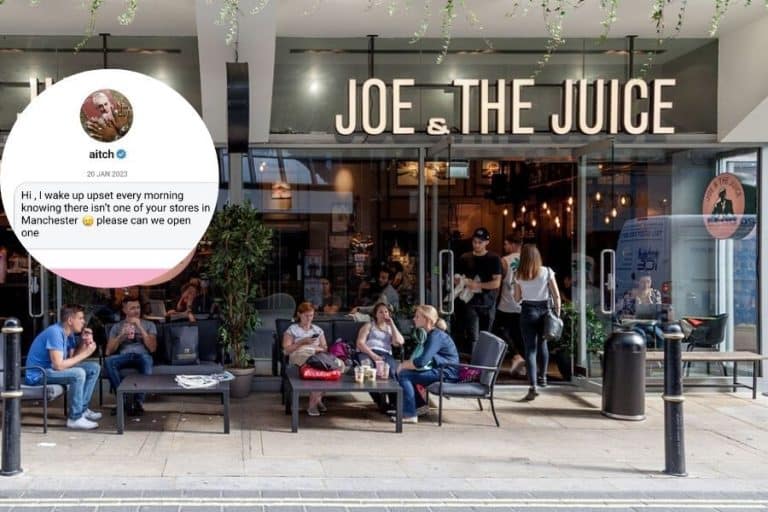
Joe & The Juice is launching a massive Manchester store – thanks to local rapper Aitch
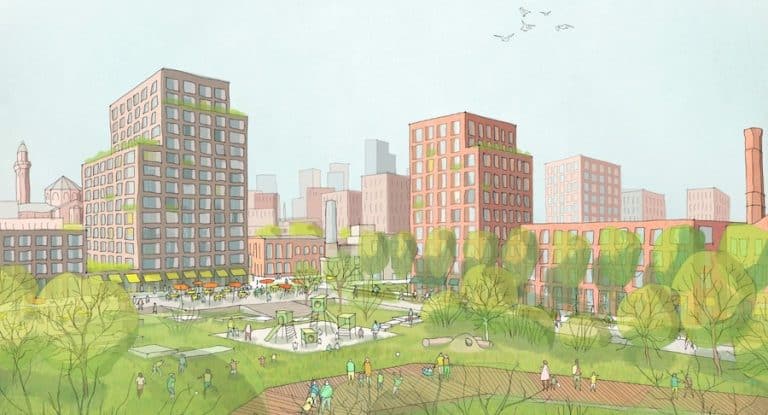
Strangeways could be home to thousands – but there’s one big problem in the way
